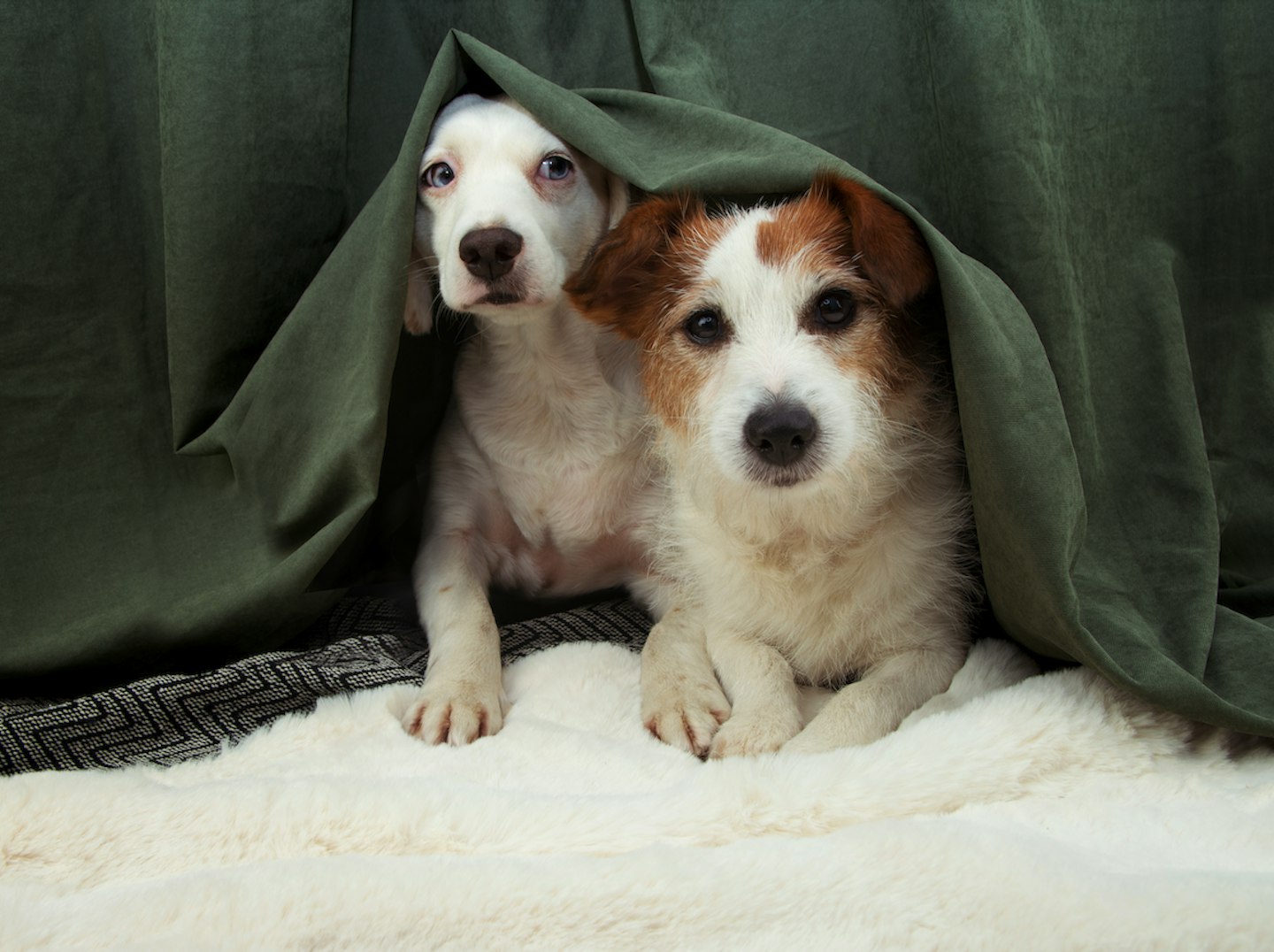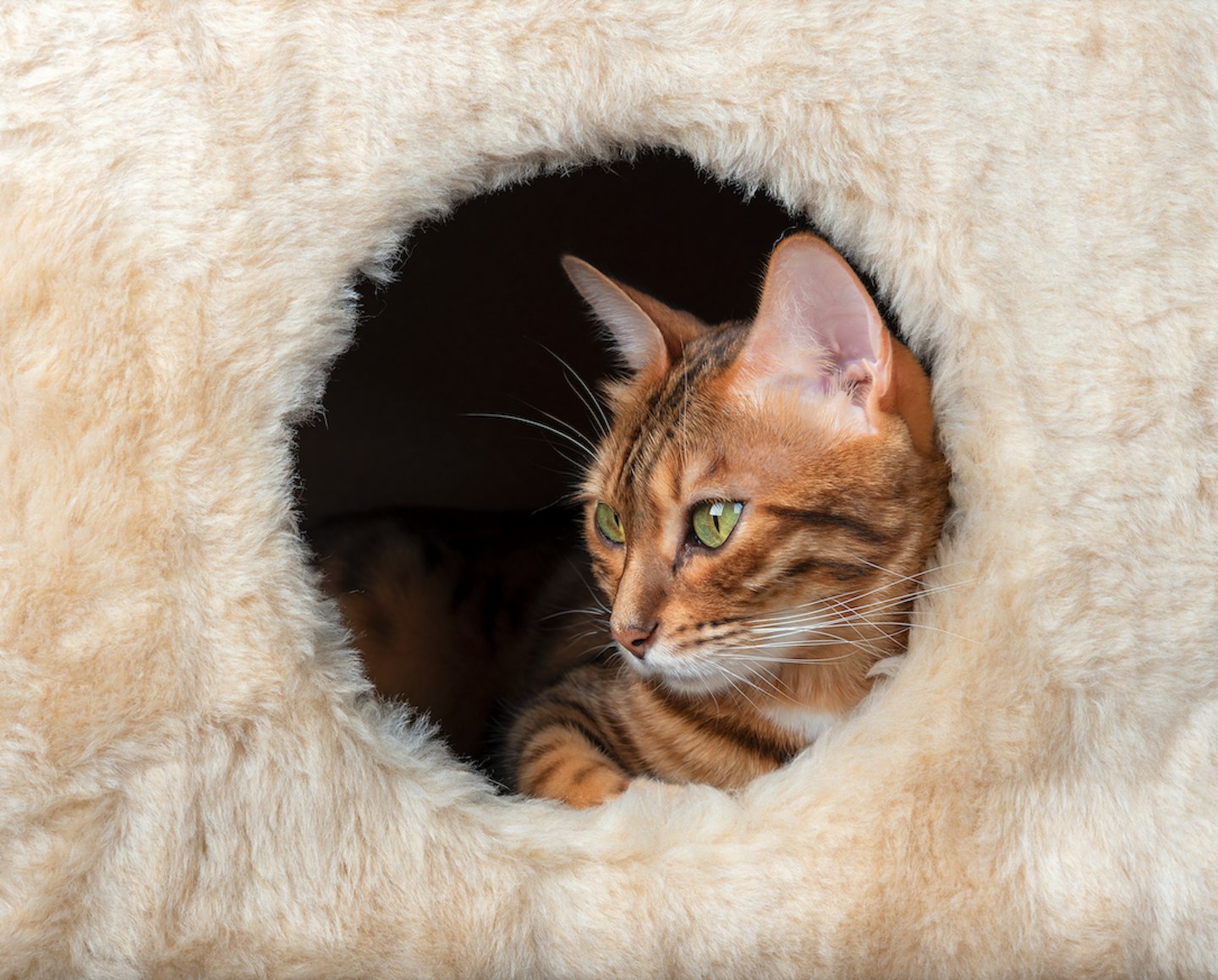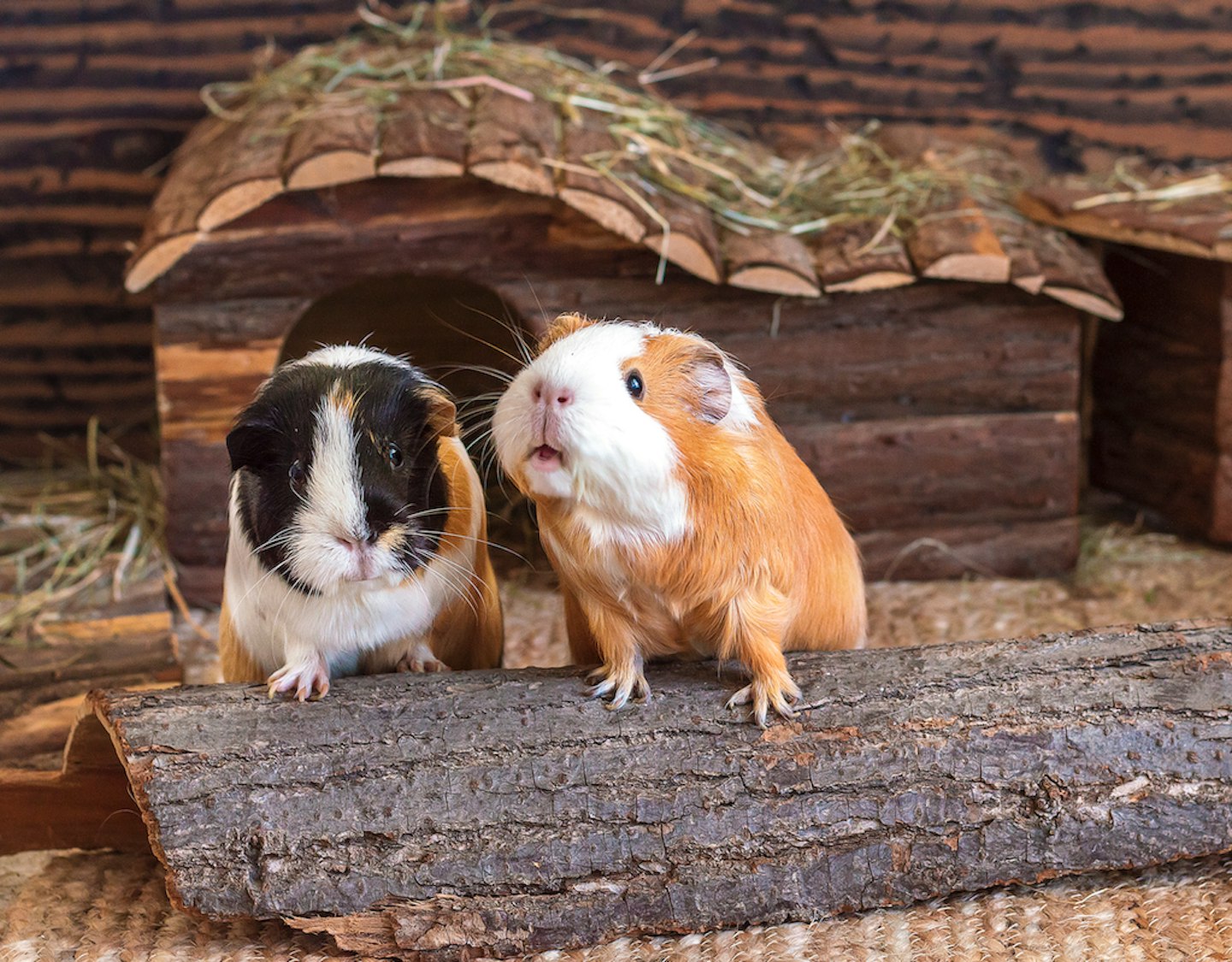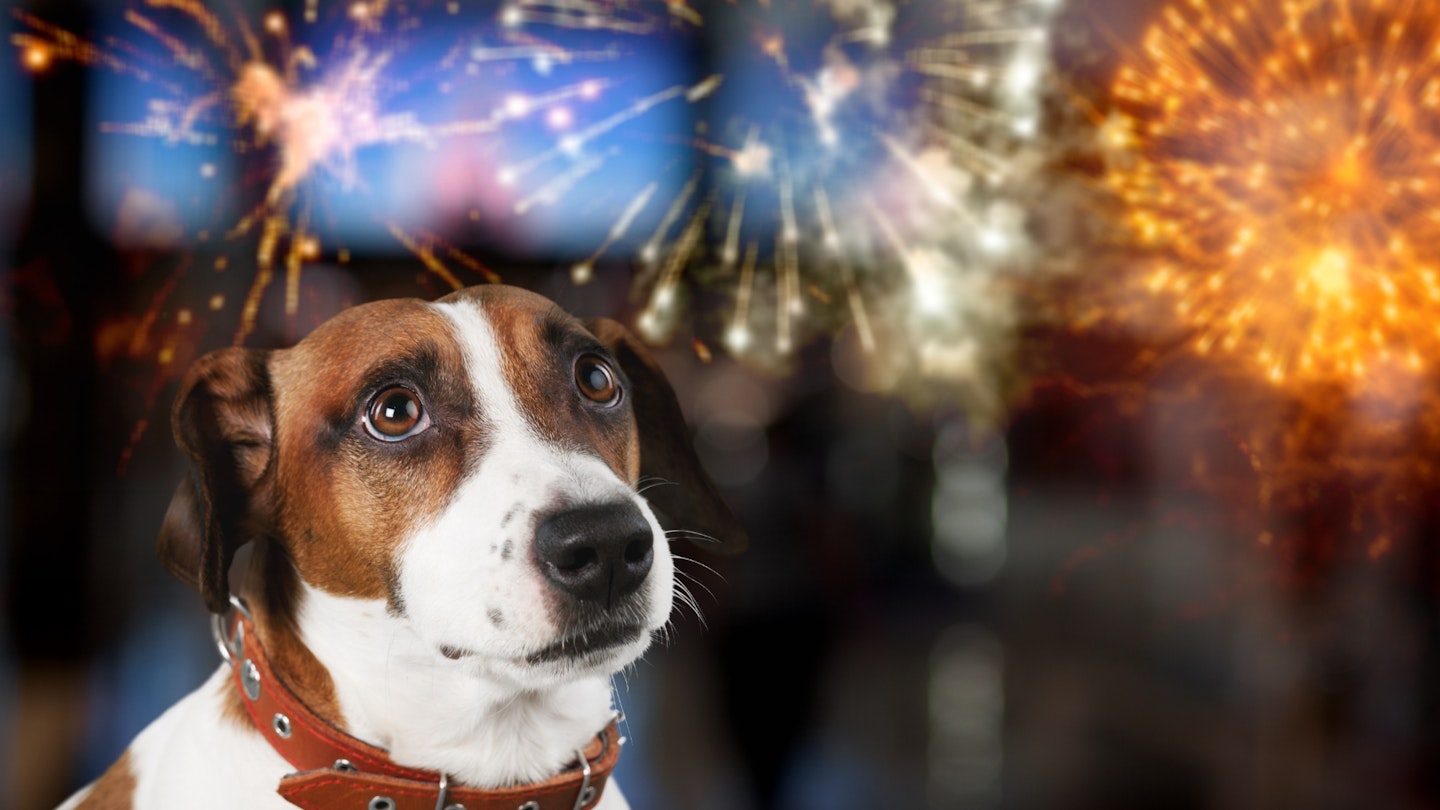As we approach Bonfire Night and New Year celebrations, many pets will find the sounds and flashes of fireworks unsettling. So, it is important to know how to keep your pet safe during fireworks.
Below, we look at the ways to make your pet feel as safe as possible during fireworks season.
What should I do with my dog during fireworks?
On Bonfire Night or during fireworks, if you know your dog is afraid of bangs and whizzes, take them out for a walk and feed them before the festivities begin.
Close the curtains and put the radio or tv on for background noise to minimise the outdoor lights and sounds.
If your dog is showing signs of fear during the display – such as yawning, lip licking, paw lifting, hiding, pacing, growling and/or shaking – make sure you have a place for them to hide and feel safe.

If they come out to you, praise them for being brave. Keep your voice calm – it’s okay to be affectionate and soothe them, but you should ideally ‘change the subject’ so that fireworks become something positive.
Give them a special treat or chew to keep them busy or distract them with a play or training session.
What should I do with my cat during fireworks?
Similarly, it’s best to bring your cat inside and make your home feel as safe as possible with closed curtains, background noise, hiding places and an indoor litter tray.
With cats, act normally rather than try and reassure them.
Investing in calming products, such as a pheromone diffuser, can also help keen your kitty feeling serene.

What should I do with my small pet during fireworks?
Small pets, such as rabbits and guinea pigs, can also find fireworks upsetting.
Companionship is the biggest protector against fear for most small animals (but not all rodents).
A neutered pair of rabbits, or a small group of same sex guinea pigs, are far more likely to remain in a relaxed state as their companions offer security.
On the day, add extra hides and bedding to small pets’ accommodation.
It’s best to lock away outdoor pets slightly earlier so they have time to settle before the fireworks start.
Avoid too much handling, and instead provide your small pets with their favourite healthy treats in a way that will stimulate them to forage and focus – for example hay kebabs, paper rummage bags and stuffed toilet rolls.
If your pet becomes extremely anxious, speak to your vet. They can recommend at-home therapies and supplements.

How do I prepare my dog for fireworks?
Before fireworks, it’s a great idea to do some training, especially for dogs. The earlier you start, the greater impact you could have on their wellbeing.
If you have a young dog, they may have not seen fireworks before, so you need to teach them that noises are not scary.
Stream firework sounds on a low volume while they are doing something they enjoy.
Vary the sound recording and, providing your dog is relaxed, you can increase the volume over a few sessions. You can also use this approach to help them adapt to other loud noises like thunder and heavy traffic.
If you have an older dog who’s been worried by fireworks on previous occasions, you can follow a similar process to desensitise them – but you will need to take it more slowly.
It’s essential you observe your dog’s body language, and the sound must always be associated with something your dog likes.
Start with the volume very low. If your dog is consistently not responding, you can increase it slightly.
Continue for a few sessions at that volume and, if they appear oblivious, increase a little more.
Only change the volume when you are sure your dog is not responding to the sound and remains focussed on their food, toy or training session.
Joe Brothwell is editor of Take a Break Pets and adores all creatures great and small. Despite being a doting cat dad to Winnie, she continues to be aloof!
